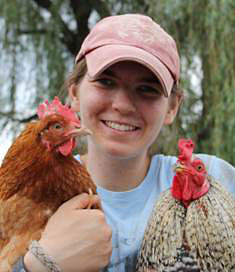
Calling all Teenagers: Science needs YOU!
The research is being led by Scotland’s Rural College (SRUC) which is working with partners the University of Edinburgh, the University of St. Andrews and the University of Hertfordshire.
They are now looking for teenagers across the UK to take part in an online survey which measures just how much our teens care about animals, both domestic and wild. They are particularly interested in how young people view their responsibility to ensure their animals are well cared for; the legal concept of ‘duty of care’. The project aims to develop and test educational material which will promote good care of animals.
Duty of care – now enshrined in law as part of the 2006 Welfare Act – refers to our responsibility to ensure that the welfare needs of our animals are met. The Act states that if you are responsible for the care of an animal you must provide for its basic needs which include diet, accommodation and protecting them from pain, suffering and disease.
This research follows on from the project, ‘Promoting a Duty of Care towards animals among young people’, also funded by Defra. It revealed that children have positive attitudes towards animals but that there is a lack of knowledge around how best to care for them.
As studies have found that children’s positive attitudes and their emotional attachment to pets declines with age, the team believe that focusing on teenagers (aged between 13 and 17) and their feelings about animals is incredibly important. The more they understand about what influences a young person’s attitude towards animals, the easier it will be to create materials that will encourage them to treat them with respect. The team is keen to assess teenagers’ feelings towards animals as it is at this stage in life where intervention could make a real difference.
SRUC Researcher, Melanie Connor, says:
“This is vital work because it will encourage more responsibility and care among pet owners and those who work with animals, and raise awareness of the importance of ‘duty of care’. Furthermore, as future consumers teenagers need to be able to make informed decisions about their shopping habits. But to work out how to encourage them to make ‘good’ or ‘responsible’ food choices, like buying high welfare products, we need to understand what motivates them. To do this we need as many teenagers to take part in this survey as possible so we can get the best data.”
Previous research has suggested that experiences early in life can have long-lasting effects on the way people feel about animals, and how they treat them. Young people’s interactions with animals are particularly important as teenagers’ experiences have a significant impact on how they treat animals when they are older.
A key aim is to find out how animals fit into teenagers’ lives, and look at how they view animals and how they interact with them. The team also plans to assess how these views and interactions affect teenagers’ lifestyles, their physical and mental health, and their empathy. For example does having a pet make teenagers more empathetic towards animals, does it improve their fitness or contribute to their happiness?
Once the team have answered these questions they will then design educational materials which aim to improve adolescent attitudes and behaviour towards animals. The materials will be used by schools and other groups working with young people.
For more information, or to speak to Melanie Connor, please contact Sarah Hunter-Argyle on 0131 535 4022, email sarah.hunter-argyle@sruc.ac.uk.
Published on 27 October 2014 in Food, health and wellbeing
Topics
- Climate, water and energy
- Ecosystems and biodiversity
- Food, health and wellbeing
- Sustainability and Communities







